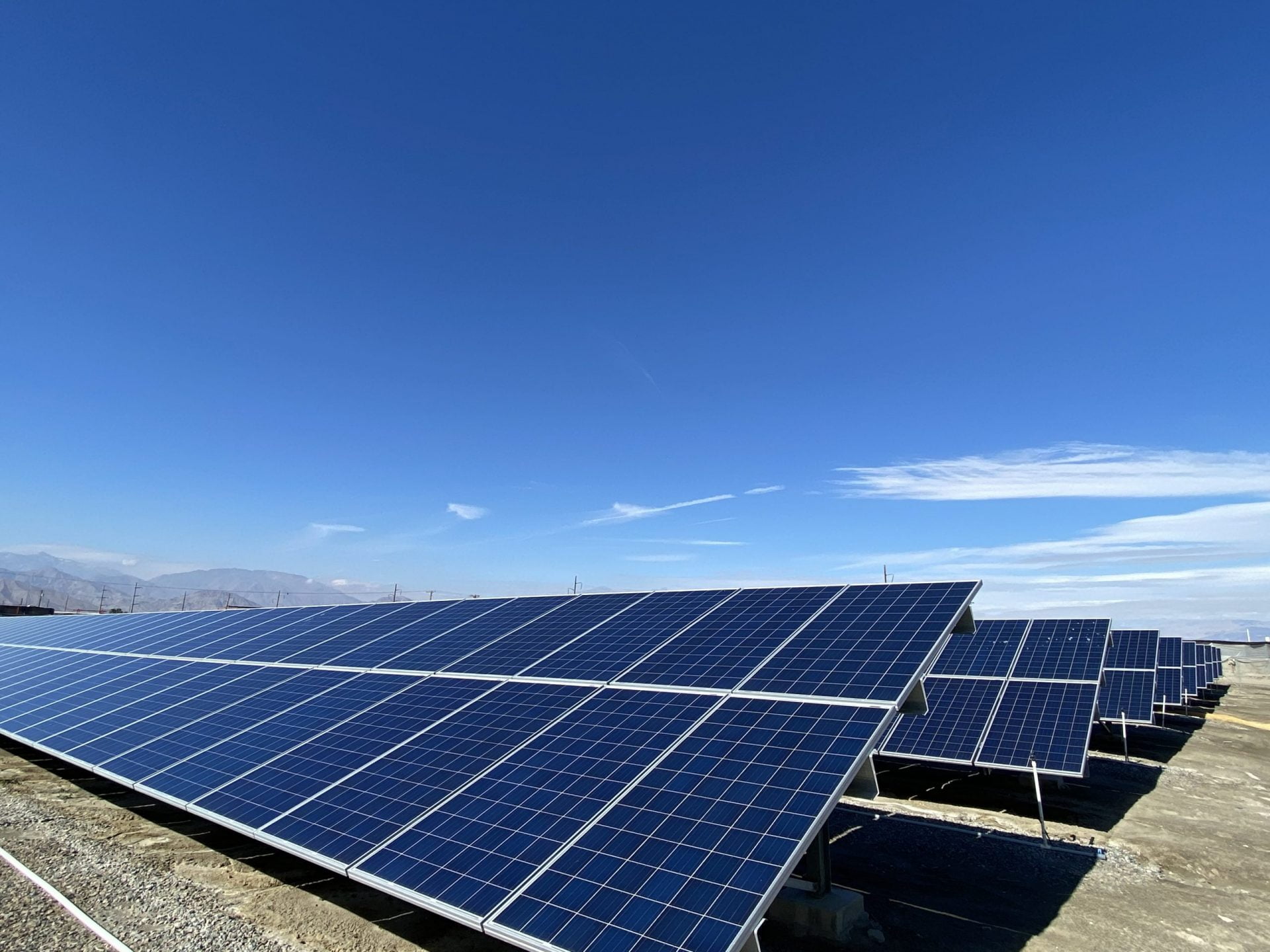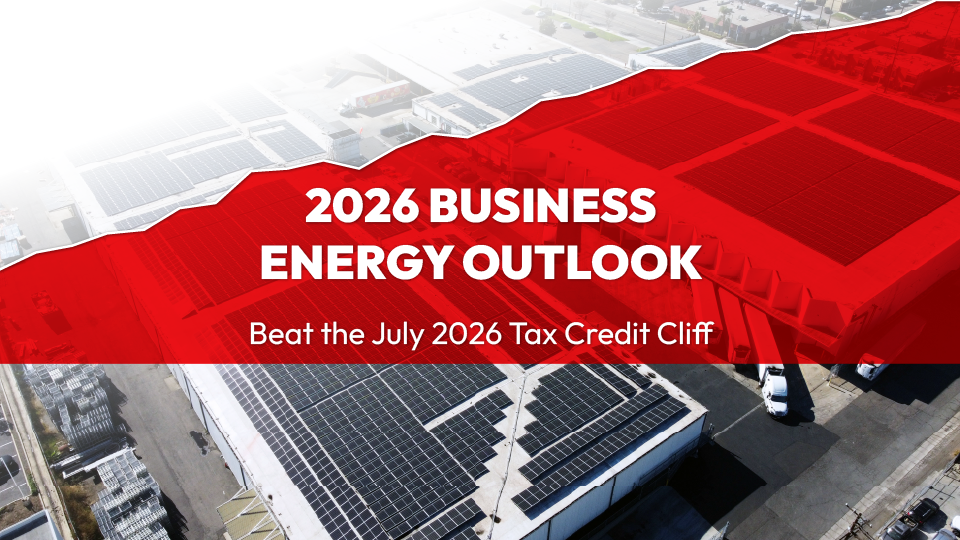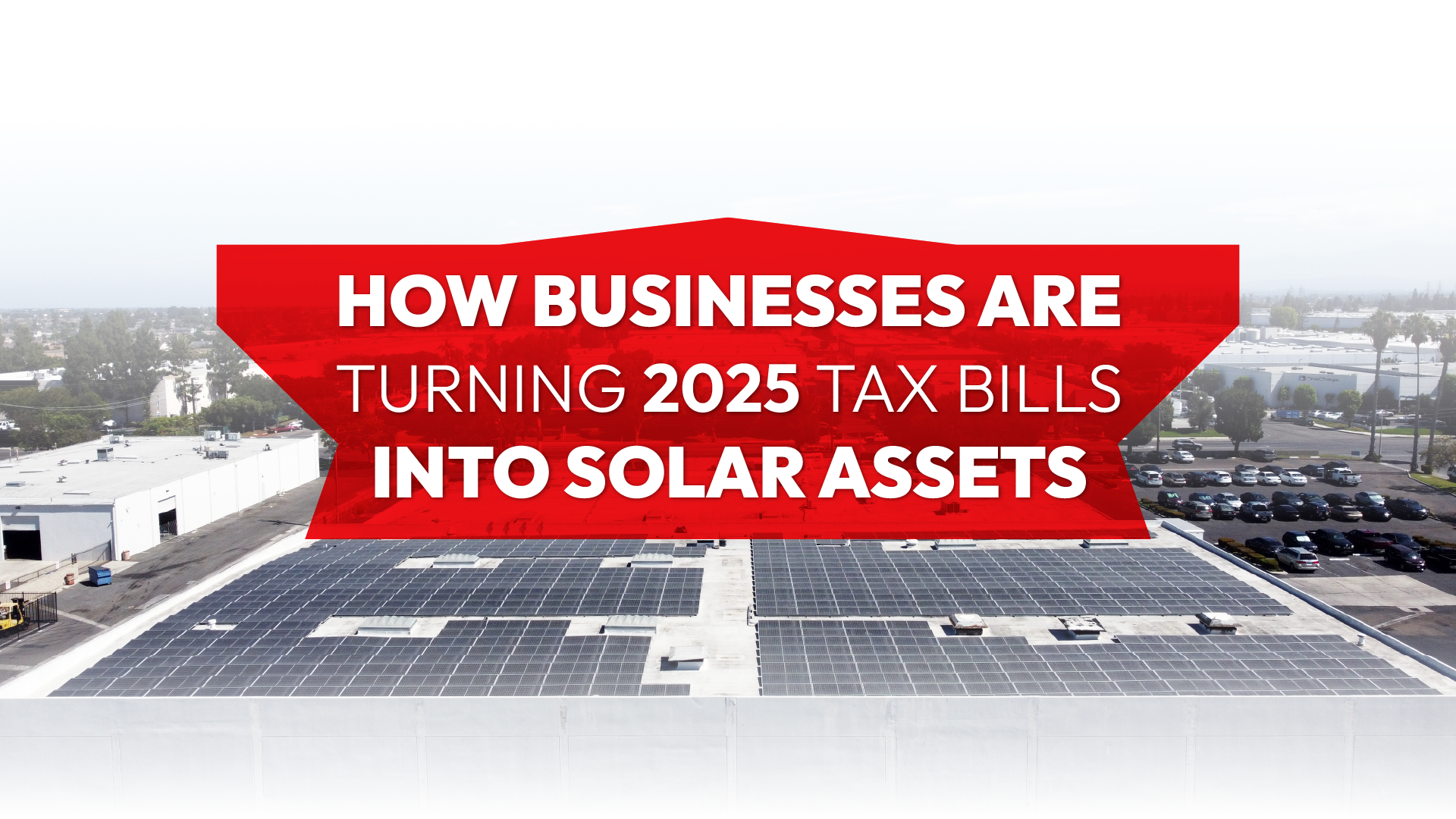
The Future of Distributed Energy Resources (DER)
In the Community Choice Aggregation (CCA) Marketplace Movement
California communities are taking back control of their electricity bills and carbon footprint with the help of Distributed Energy Resources (DER) and Community Choice Aggregation (CCA).
The future of the electric power energy value chain is being transformed by policy, distributed renewable generation, disruptive technology, and battery storage. This disruption in a century-old utility regulation model will help democratize the energy value chain, and create a competitive energy service market for Community Choice Aggregation (CCA).
Key highlights of CCA and DER:
- CCAs are driving local distributed energy resource (DER) growth
- DER includes commercial rooftop and ground mounted solar
- DER will improve grid security and reliability for CCA customers and provide local job
This promotes an environment where CCAs and other power companies utilize Distributed Energy Resources (DER) to integrate service areas, with nanogrids (buildings) and microgrids (campuses and neighborhoods). DER will improve security, reliability and accessibility for customers and suppliers.
California regulatory policies are profoundly changing the power grid and generation infrastructure, even before the markets, regulators, and customers.
Sacramento has signed several bills to encourage energy storage and Distributed Energy Resources to go along with the SB100 bill to get the state to 100% renewables. Bills include:
- AB 1637 for the Self Generation Incentive Program (SGIP)
- AB 2868 to speed up the installation of distributed storage
- AB 2861 to resolve disputes over interconnecting distributed energy into the grid
- AB 33 to assess renewable-integrated, long-duration bulk energy storage
With the recent emergence of Community Choice Aggregation in California (60 cities/8 million customers and counting), the question becomes how will these cities and counties use these new programs to differentiate their service models from those of the Investor Owned Utilities (IOU) like PG&E, SCE, SDG&E? The CCA program requires that 65% of all their energy purchases must be secured through long term PPA contracts by 2021. Since the CCAs have very aggressive renewable mandates, we expect that the vast majority of these contracts will be for remote, large-scale renewable projects as they take over most of the state’s customer load.
The SB100 bill requires the state to achieve 100% renewables by 2045, but most CCAs have more ambition goals. For example, the City of San Diego’s new CCA program requires the city to achieve 100% renewables by 2035, a full ten years before the state of California. This completely contrasts the IOUs viewpoint. CCAs are driven by local community goals, not profit. Couple this with highly competitive renewable technologies and we are sure to see the CCA’s taking a steady hold of the IOU’s customer base.
Large solar and wind farms would occupy valuable real estate within the cities, and therefore the CCAs look to places like the high desert to satisfy their renewable energy needs. The issue with this model is that these centralized power stations require electricity to be transmitted over long distance transmission links. The old, dilapidated power grid is in need of serious repair. Repairs come with high dollar costs. These are some reasons for the state’s exceptional energy rate cost growth. Just more reasons for CCAs and DER to grow.
Another byproduct of the CCA movement will be more local jobs. The city focused projects will need management, maintenance and installation, all contributing to the creation of more jobs.
Conclusion
Nanogrids, or local rooftop solar and other renewable energies will be crucial for CCAs to achieve their lofty goals. The close proximity to users, alleviates the inherent issues with transmission and delivery. California’s cities have some of the nation’s highest concentration of flat rooftop square footage. A perfect canvas for DERs.
Revel Energy is assisting city and county communities throughout Southern California to help provide information, educational material, and energy solutions to local businesses as these changes take place in their own community. Revel works with businesses to better understand how the new CCA programs can utilizing DER can benefit them and save them money. We are committed to supporting the utilization of renewable energy to address the growing concerns of climate change and assisting these communities to go green. If we can answer any questions, please feel free to contact us.
Author: Mark Foster, Revel Energy
ROOFTOP SOLAR
Commercial grade rooftop solar is ideal for: manufacturing, warehousing, logistics, industrial, retail, hospitality buildings and more with over 10,000 sq. ft. rooftops.
CARPORT SOLAR
Free standing carport solar generates added solar power for properties with limited rooftop space. Added benefits include shading and protection for employees vehicles.
ENERGY STORAGE
Crucial for reducing peak demand charges. Automated to supply electricity when your panels won’t. Energy storage is ideal for businesses that incur significant peak hour charges
LED LIGHTING RETROFIT
Generating independent solar power is one piece of the puzzle. Energy saving equipment like highly efficient LED Lighting completes the system. Significantly reduce energy usage.
About Revel Energy
Revel is on a mission. Dedicated to renewable energy solutions since 2009, Revel Energy was formed to provide Commercial, Industrial and Agricultural businesses with alternative energy beyond solar. Revel stands out from the competition by paying attention to what makes good business sense to each individual client, implementing a wider range of technologies to free up capital and make businesses sustainable and more profitable.
OUR SERVICES
TURNKEY COMMERCIAL GRADE SOLAR, ENERGY STORAGE, LED LIGHTING AND MORE.
PROFESSIONAL GUIDANCE
CUSTOM TAILORED PLANNING
CONSTRUCTION & INSTALLATION
CSLB #1038433
Client Testimonial: Tice Gardner & Fujimoto LLP
See how this CPA firm saved on electricity and gained valuable tax credits through commercial solar that they used to keep cash in the businesses.
Client Testimonial: Kelemen Company
Corporate Business Park in Irvine, CA has created significant electricity cost savings through commercial solar installed across the 5-building business park.




